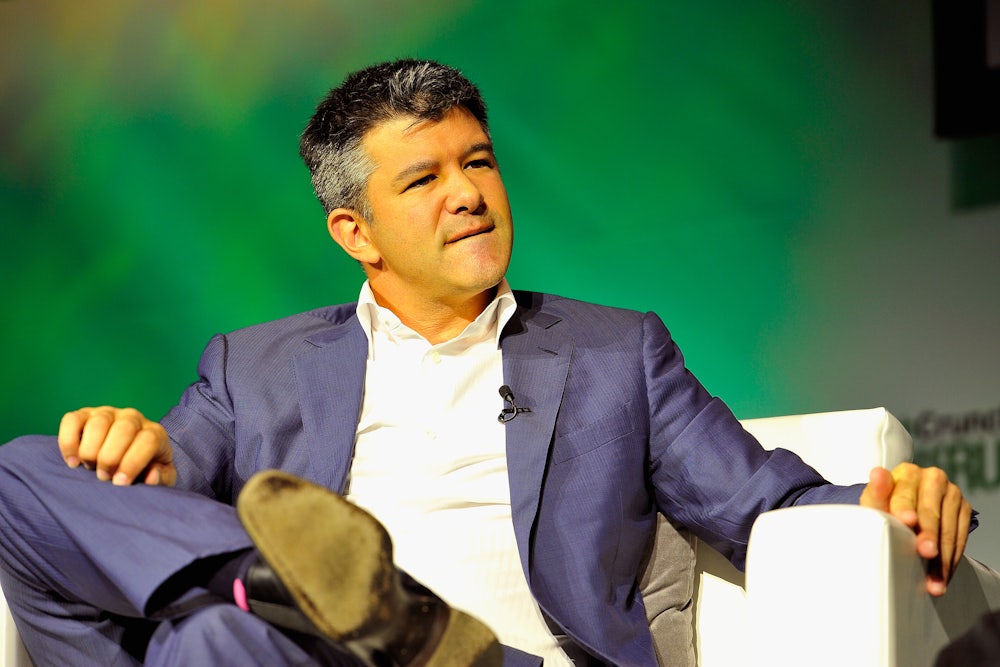On Wednesday it was reported that Uber’s shareholders had gotten sick of the antics of their large adult son, and asked him to step down. It was long past due: Over the past year Uber has gone through scandal after scandal, most of which Kalanick brought upon the company. As CEO, Kalanick fostered a toxic workplace culture rife with sexism, leading former employee Susan Fowler to publish a blog post in February alleging that Uber’s HR department systematically ignored her sexual harassment complaints.
Then there are the former senior executives who are being sued after one of them obtained and shared the private medical records of a woman who was allegedly raped by her Uber driver. Last week, a board member resigned because he made a sexist joke at a meeting meant to address Uber’s sexism.
Now with Kalanick gone (although he remains on the board of directors), the company is trying to revamp its image. In a statement, Uber’s board wrote that Kalanick’s departure would allow the company to “embrace this new chapter in Uber’s history.” On Tuesday, it released its 180-day plan to make the company better for its drivers, starting by allowing in-app tipping, a feature that its competitor, Lyft, has offered for five years.
These changes are a win for drivers. Tipping was one of the main asks of the Independent Drivers Guild, an affiliate of the Machinists Union, which represents 50,000 drivers in New York City. But a peek under the hood reveals the ways in which Uber is still a sketchy company.
Take the Independent Drivers Guild itself. This is the first time Uber has officially recognized a group of drivers, but there are a lot of reasons why it’s advantageous for Uber to do so, as Noam Scheiber reports at The New York Times. First, the guild is not officially a union, which means it can’t bargain for a contract that would include wages and benefits. It’s difficult for Uber drivers to form an actual union because they are classified as independent contractors instead of employees, an arrangement that labor activists have criticized time and time again.
Furthermore, the Independent Drivers Guild has entered a five-year agreement with Uber that reportedly includes a stipulation that the guild will refrain from challenging the company for classifying these drivers as contractors. Some, like Bhairavi Desai of the New York Taxi Worker’s Alliance, have accused Uber of creating a company union.
The fact that drivers are classified as contractors is, of course, not mentioned in Uber’s 180-day plan. The company is trying to rehabilitate its image, without substantively changing any of its exploitative labor practices. Kalanick might be gone, but the company he built will live on.
